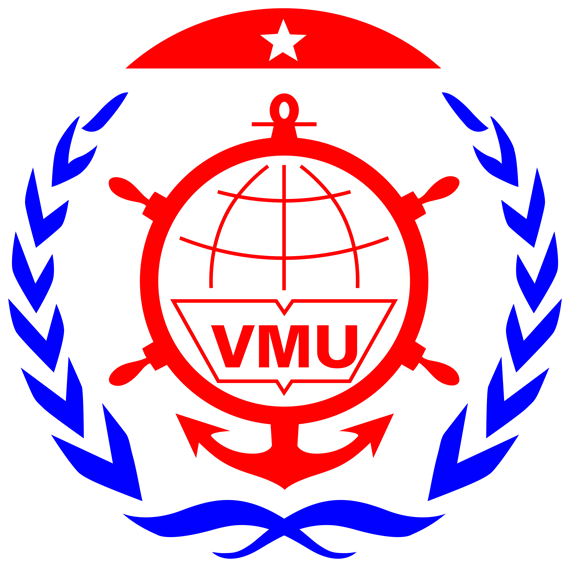1. Introduction
|
Program title: |
Bachelor of Mechanical Engineering |
|
Graduation degree: |
Bachelor's degree |
|
Study model: |
Full-time |
|
Total credits: |
139 |
|
Used language: |
Vietnamese |
|
Training duration: |
4 years (8 semesters) |
|
Responsible Faculty: |
School of Mechanical Engineering |
|
Website: |
|
|
Address: |
Room 702, 7rd floor A6 Building, Vietnam Maritime University 484 Lach Tray - Le Chan - Hai Phong |
The Mechanical Engineering training program aims to equip students with in-depth knowledge and specialized skills in the field of Mechanical Engineering. The program's objective is to train graduates capable of creativity, design, implementation, and operation of mechanical systems and equipment, including specialized systems. Additionally, graduates will develop flexible and innovative thinking, enabling them to adapt easily to diverse working environments. They will also possess the competitiveness required to succeed in the Asia-Pacific region while contributing to the development of the maritime economy, national construction and defense, and international integration.
The Mechanical Engineering training program at Vietnam Maritime University is designed according to the international CDIO standards and developed by experienced experts. The program is continuously updated with advanced content in Mechanical Engineering to ensure alignment with modern technological developments. Special emphasis is placed on practical skills, creative thinking, and professional competence.
The faculty consists of experts who have graduated from prestigious domestic and international universities, possessing extensive teaching and practical experience. Many lecturers hold doctoral degrees and the title of Associate Professor. Advanced teaching methods are applied, shifting from traditional knowledge transmission to fostering students' qualities, competencies, creativity, and self-learning abilities, in line with the comprehensive education and training reform.
Students have the opportunity to practice at the university’s Mechanical Engineering Laboratory Center under the guidance of experienced lecturers and invited experts from industries. Additionally, the university facilitates student participation in field trips, internships, and practical training at reputable enterprises and manufacturing plants in the region, helping them enhance practical skills and gain exposure to professional working environments.
2. Curriculum
The Bachelor of Mechanical Engineering program is organized into 8 semesters as follows:
Throughout eight semesters, students undertake a comprehensive curriculum that integrates theoretical knowledge with hands-on practical experience. The program covers fundamental sciences, core engineering principles, and specialized mechanical engineering topics, preparing students for industry, research, and innovation.
Semester I: Fundamentals of Engineering and Sciences
In Semester I, students acquire foundational knowledge in core subjects such as Introduction to Engineering, Calculus, and Physics 1, which provide essential analytical and problem-solving skills. General Law introduces fundamental legal concepts, while Technical Chemistry explores the chemical principles relevant to engineering applications. Students may also select elective courses, such as Environmental Protection and Sustainability and Soft Skills 1, to enhance their environmental awareness and communication abilities.
Semester II Strengthening Core Engineering Knowledge
In the second semester, students expand their scientific and engineering knowledge. Calculus II and Physics II build on previous mathematics and physics courses. Mechanics of Materials I introduces stress and strain analysis, while Engineering Materials explores material selection and properties. Technical Drawing & CAD II enhances 3D modeling skills, and Manufacturing Processes introduces machining and fabrication techniques. Mechanical Workshop Practice offers hands-on experience with tools and machines. Optional courses such as Basic English II and Soft Skills II further enhance communication and professional abilities.
Semester III: Core Mechanical Engineering Principles
In Semester III, students engage with more advanced topics, including Political Economy, examine the principles of economic systems. Machine Theory, Strength of Materials introduce fundamental information about failure theories and material behavior. Mechanical Drawing & CAD enhances technical design competencies, while Engineering Materials and Automatic Control Engineering introduce students to material selection and system automation. Optional subjects are Basic English 2 and Business Management, provide opportunities for interdisciplinary learning.
Semester IV: Expanding Technical Expertise
This semester focuses on system analysis, design, and engineering applications. Machine Design Fundamentals explores the operations and mechanism design process, while Tolerances & Measurement Techniques covers introduces the core knowledge relating tolerance of mechanisms and its details as well as several measuring methods. Manufacturing Process widens the awareness of manufacturing process. Applied Mathematics furthers strengthen analytical skills
Semester V: Advanced Engineering and Design
Students engage with cutting-edge mechanical engineering disciplines. Project of Machine Design deepens understanding of mechanical components. Finite Element Analysis introduces simulation techniques for structural analysis. Machining Tools provides the understanding of manufacturing equipment and their implement in industry. Internship I provides students with their first exposure to industry.
Semester VI: Specialization and Industry Application
This semester emphasizes industry-relevant technologies and innovation. Product Design aided by CAD enhance the knowledge of creating and simulating the product in 3D environment. Industrial System refers to a structured set of processes, equipment, people, and technologies working together to produce goods or services efficiently. These systems are designed to optimize production, resource management, and operational efficiency in industries such as manufacturing, energy, logistics, and automation. Applied Hydraulics & Pneumatics gives information about control systems.
Semester VII: Emerging Technologies and Integration
Students engage with modern engineering challenges and technologies. Manufacturing process design is the subject of planning and organizing production steps to create mechanical products that meet technical, quality, and economic efficiency requirements. This process includes product analysis, material selection, machining method determination, process design, tool and machine selection, quality control, and production optimization. CAD/CAM & CNC Technology explore automated manufacturing. Management and Sustainable Engineering explores environmentally friendly engineering practices. Internship II provides hands-on industry experience.
Semester VIII: Practical Experience and Final Project
In the final semester, students apply their knowledge through practical projects and industry exposure. Optional courses include CAD Applications and Mechanical Engineering Project.
This 8-semester curriculum provides a strong theoretical foundation, hands-on training, and exposure to emerging engineering fields, ensuring graduates are well-prepared for careers in mechanical engineering, research, and innovation.
